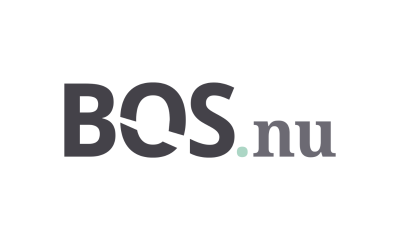Industry News
Digital Fraudsters Increase Attacks Against Multiple Industries During Pandemic; Use COVID-19 Scams to Target Younger Generations

TransUnion quarterly global fraud analysis also examines the types of fraud targeting businesses and where it originates
TransUnion released its quarterly analysis of global online fraud trends finding that the telecommunications, retail and financial services industries have been increasingly impacted. From a consumer perspective, Millennials have been most targeted by fraudsters using COVID-19 scams.
Given the changing economic environment with COVID-19, this quarter TransUnion analyzed fraud trends through April 28 to ensure the impacts following the March 11 World Health Organization (WHO) pandemic declaration were included in the analysis
Overall, TransUnion found the percent of suspected fraudulent digital transactions rose 5% from March 11 to April 28 when compared to Jan. 1 to March 10, 2020. TransUnion identified more than 100 million risky transactions from March 11 to April 28.
“Given the billions of people globally that have been forced to stay at home, industries have been disrupted in a way not seen on this massive of a scale for generations,” said Shai Cohen, senior vice president of Global Fraud & Identity Solutions at TransUnion.
“Now that many transactions have shifted online, fraudsters have tried to take advantage and companies must adapt. Businesses that come out on top will be those leveraging fraud prevention tools that provide great detection rates and friction-right experiences for consumers.”
Examining Fraud Types and Their Impact on Industries
TransUnion analyzed the below industries for a change in the percent of suspected fraud against them, comparing Jan. 1 to March 10 and March 11 to April 28.
Suspected Fraud Post Pandemic Declaration
| Industry | Suspected fraud increase | Top type of fraud | Top country for suspected fraud origination |
| Telecommunications | 76% | Credit card | Timor-Leste |
| E-Commerce | 12% | Promotion abuse | Indonesia |
| Financial Services | 11% | Identity theft | Syria |
| Gambling | -1% | Promotion abuse | Sri Lanka |
| Public Sector | -1% | Account takeover | Nigeria |
| Insurance | -3% | Ghost broking | Pakistan |
| Logistics | -7% | Shipping | Philippines |
| Communities | -11% | Phishing | Ivory Coast |
| Travel & Leisure | -38% | Credit card | Haiti |
| Healthcare | -40% | Identity theft | Finland |
| Gaming | -43% | Gold farming | Myanmar |
“Our data shows that as social distancing changes shopping patterns, fraudsters have taken notice and targeted the more digital forward industries while following the money,” said Melissa Gaddis, senior director of customer success for TransUnion Global Fraud & Identity Solutions. “For instance, although we found online gaming increased 64% as people stay home, it isn’t immediately lucrative to target those companies since financial information isn’t generally shared there. However telecommunications, e-commerce and financial services all have large digital adoption, financial information and payments at the center of their online experience, and fared relatively well compared to other industries during the pandemic.”
Globally across industries, TransUnion found the countries with the highest percent of risky transactions were: 1) Yemen, 2) Syria and 3) Kazakhstan. In the U.S. overall, TransUnion found the cities with the highest percent of risky transactions were: 1) Springfield, Mass., Akron, Ohio and Louisville, Ky.
Consumers Targeted By COVID-19 Schemes
To better understand the impacts of COVID-19 on consumers, TransUnion surveyed 9,215 adults in the U.S., Canada, Colombia, Hong Kong, India, South Africa and the U.K. during the week of April 13. Nearly three out of 10 respondents (29%) said they had been targeted by digital fraud related to COVID-19, with Millennials (those persons between the ages 26-40) being the most targeted at 34%.
Furthermore, TransUnion found that consumers who said their household income is being negatively impacted by the COVID-19 pandemic are more likely to experience digital fraud with 32% reporting being targeted by online COVID-19 scams compared to 22% of people not financially impacted.
“A common assumption is that fraudsters target older generations who are perceived to be less digitally capable,” said Gaddis.”Our data showed the opposite with younger generations, Millennials and Gen Z (those born in or after 1995), being the most targeted. Adding insult to injury, our survey found Millennials are being financially challenged the most during the pandemic.”
Methodology
For its transactional data, TransUnion analyzed the billions of online transactions its flagship fraud and identity solution, TransUnion IDVision® with iovation®, assessed for fraud indicators for more than 40,000 websites and apps. It compared the percent of suspected fraudulent transactions it saw from Jan. 1 to March 10, 2020 to those from March 11 to April 28, 2020.
For a hub of relevant educational resources aimed to help fight fraud during this time, go to the TransUnion Global Fraud & Identity Solutions COVID-19 resource center.
About TransUnion:
TransUnion is a global information and insights company that makes trust possible in the modern economy. We do this by providing a comprehensive picture of each person so they can be reliably and safely represented in the marketplace. As a result, businesses and consumers can transact with confidence and achieve great things. We call this Information for Good.®
TransUnion Global Fraud & Identity Solutions unite both consumer and device identities to detect threats across markets while ensuring friction-right user experiences. The solutions, all part of the IDVision with iovation suite, fuse traditional data science with machine learning to provide businesses unique insights about consumer transactions, safeguarding tens of millions of transactions each day.
A leading presence in more than 30 countries across five continents, TransUnion provides solutions that help create economic opportunity, great experiences and personal empowerment for hundreds of millions of people.
-

 Africa5 days ago
Africa5 days agoQTech Games wins Best Innovation of the Year at the 2025 SBWA+ Eventus Awards
-

 Asia5 days ago
Asia5 days agoNODWIN Gaming and JioStar Unveil OnePlus Android BGMS Season 4
-

 Latest News5 days ago
Latest News5 days agoVindral appoints Henrik Fagerlund as Chairman of the Board
-

 Latest News5 days ago
Latest News5 days agoCalema to Perform at Legends Charity Game in Lisbon
-

 Conferences in Europe5 days ago
Conferences in Europe5 days agoEGT Digital and EGT to rock the show at SiGMA Euro-Med 2025
-

 Latest News4 days ago
Latest News4 days agoPush Gaming redefines its portfolio, unveiling new game categories and sub-brand for extended player reach
-

 Compliance Updates5 days ago
Compliance Updates5 days agoNew channelization assessment from the Gambling Authority confirms Sweden’s problem
-

 Affiliate Industry4 days ago
Affiliate Industry4 days agoNikita Lukanenoks Brings Slotsjudge Into Spotlight With Affiliate Leaders Awards 2025 Nomination































